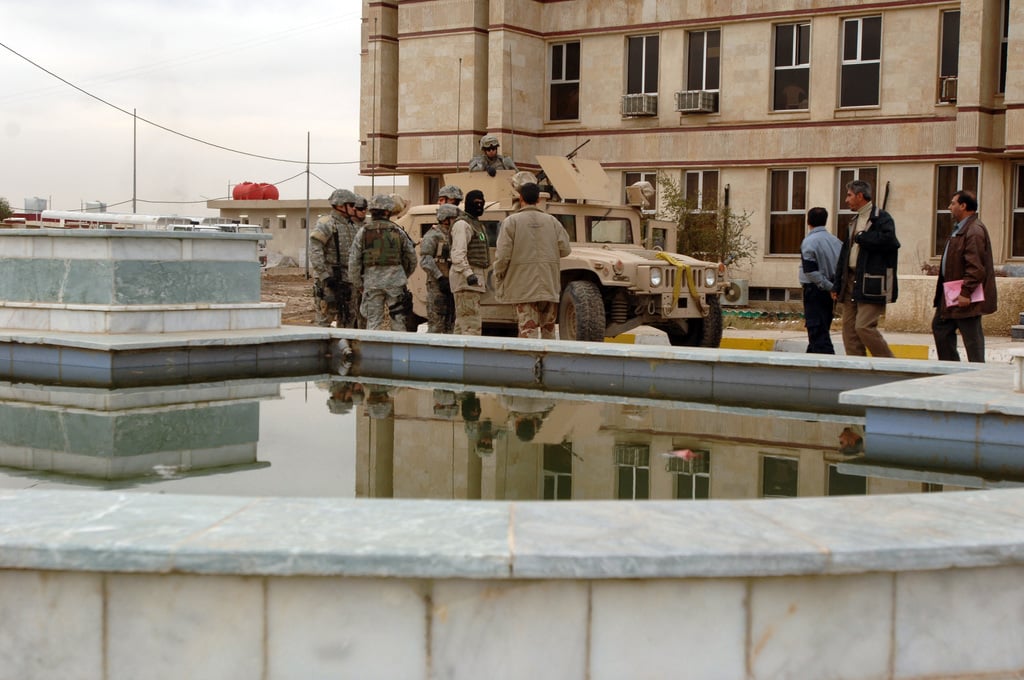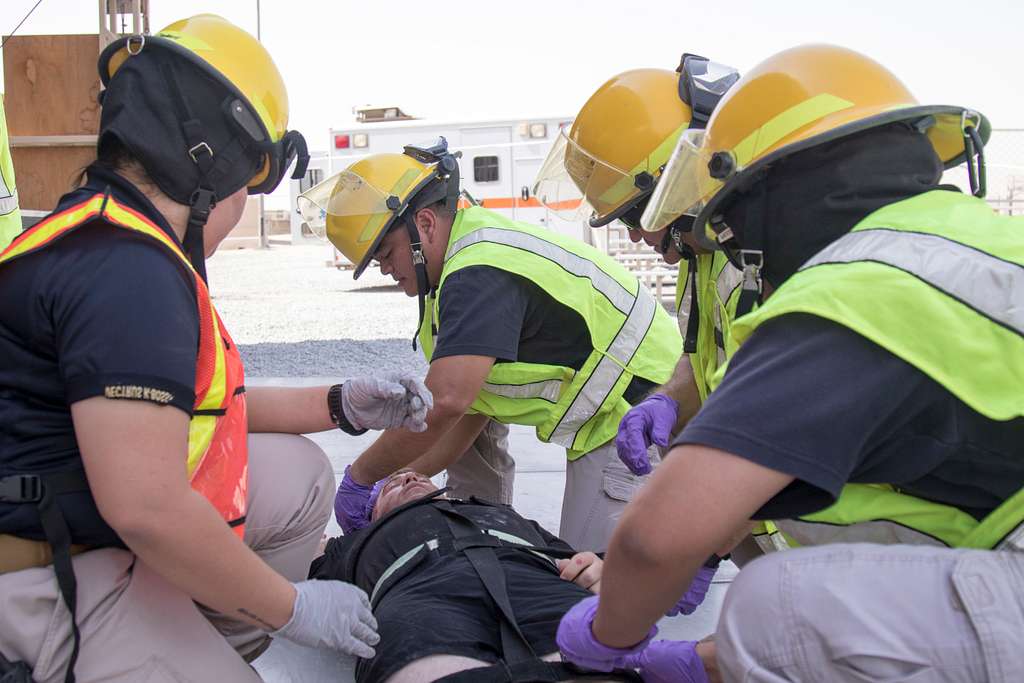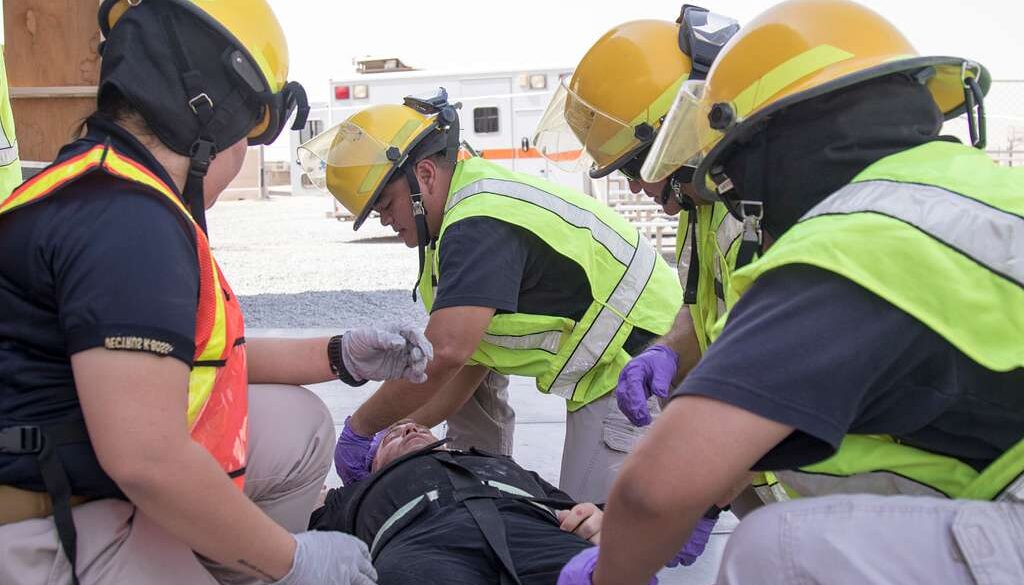Tragedy in Kuwait: Building Fire Kills 41, Including Many Indians
In a tragic turn of events, the Tragedy in Kuwait gas leak disaster has left an indelible mark on the lives of many Building Fire Kills 41, particularly affecting the Indian expatriate community. This catastrophic event, which unfolded with harrowing speed, resulted in the loss of numerous lives and caused widespread devastation. For many, the tragedy is not just a distant news story but a deeply personal and painful chapter in their lives. This blog aims to delve into the details of the incident, its immediate aftermath, the human stories behind the headlines, and the broader implications of this disaster.

The Incident: What Happened?
On a seemingly ordinary day, the serene atmosphere of a residential area in Kuwait was shattered by a catastrophic gas leak. The leak, originating from a pipeline in an industrial area adjacent to residential neighborhoods, quickly escalated into a full-blown emergency. Toxic gases rapidly spread, engulfing homes and streets, leaving little time for residents to react.
The source of the leak was later identified as a ruptured pipeline carrying hazardous industrial gases. The pipeline’s breach released a deadly cocktail of chemicals, including hydrogen sulfide and methane, which are extremely harmful to human health. Within minutes, the area was enveloped in a toxic cloud, leading to chaos and panic among the residents.
Immediate Response and Rescue Efforts
The response to the gas leak was swift but fraught with challenges. Emergency services, including fire brigades, medical teams, and police units, were mobilized immediately. However, the high toxicity levels and the rapid spread of the gas complicated rescue operations.
First responders faced significant risks as they navigated the contaminated area to evacuate residents and provide medical assistance. Hospitals in the vicinity were quickly overwhelmed with casualties, ranging from severe respiratory distress to unconsciousness and fatalities.
Rescue Efforts:
- Evacuation: Authorities swiftly evacuated the affected neighborhoods, moving residents to safer locations and providing temporary shelters.
- Medical Response: Hospitals and clinics were on high alert, treating victims with symptoms of gas poisoning, including respiratory issues, nausea, and skin irritations.
- Containment: Efforts to contain and neutralize the gas leak were initiated, with technical teams working tirelessly to repair the ruptured pipeline and prevent further leakage.
The Impact on Indian Lives
Among the victims of this Tragedy in Kuwait were a significant number of Indian expatriates. Kuwait hosts a large Indian community, many of whom reside in areas close to industrial zones due to affordable housing options. The gas leak disaster, therefore, disproportionately affected this community, leading to heartbreaking losses and widespread grief.

Stories of Loss and Grief
The Jaiswal Family:
Ramesh Jaiswal, a 42-year-old engineer from Uttar Pradesh, had moved to Kuwait with his family for better job prospects. On the day of the disaster, Ramesh was at work while his wife, Sunita, and their two children, aged 7 and 4, were at home. The toxic gas engulfed their home before they could escape. Despite rescue efforts, Sunita and the children succumbed to the gas exposure. Ramesh, devastated by the loss, shared, “I left India to build a better future for my family, but now I have lost everything.”
Aman Kumar:
Aman Kumar, a young professional from Bihar, had been in Kuwait for just six months. He had dreams of saving enough money to support his parents and siblings back home. On the day of the tragedy, Aman was returning from work when he was caught in the gas leak. He was found unconscious on the street and later pronounced dead at the hospital. His grieving father, Ram Kumar, said, “Aman was our hope for a better future. Now, that hope is gone.”
Broader Implications and Safety Concerns Of Tragedy in Kuwait
The Kuwait gas tragedy has raised significant concerns about industrial safety standards and the protection of residential areas adjacent to industrial zones. This incident underscores the need for stringent safety protocols and regular maintenance of industrial infrastructure to prevent such disasters.

Industrial Safety Standards
In the wake of the disaster, Tragedy in Kuwait questions have been raised about the adequacy of safety measures in place at the industrial site. Preliminary investigations indicated that the pipeline had not undergone regular maintenance checks, and there were lapses in the monitoring systems designed to detect leaks early. These findings point to systemic issues that need to be addressed to prevent future occurrences.
Key Areas for Improvement:
- Regular Inspections: Implementing stringent inspection protocols for industrial pipelines and facilities to ensure early detection of potential hazards.
- Emergency Preparedness: Enhancing emergency response plans, including regular drills and training for first responders and residents.
- Community Awareness: Educating residents living near industrial zones about potential risks and emergency procedures.
Government and Diplomatic Responses
The Indian government, along with Kuwaiti authorities, has been actively involved in the aftermath of the disaster. Diplomatic channels have been utilized to provide assistance to the affected Indian families and ensure that their needs are met during this difficult time.
Indian Government’s Role
The Indian Embassy in Kuwait has been at the forefront, coordinating relief efforts and offering support to the victims’ families. They have set up helplines and assistance desks to help those affected by the tragedy.
Support Measures:
- Repatriation: Arrangements for the repatriation of deceased Indian nationals to their home states for final rites.
- Financial Assistance: Providing financial aid to the families of the victims to help them cope with the immediate aftermath.
- Counseling Services: Offering psychological counseling and support to those affected by the trauma.
Kuwaiti Government’s Response
The Kuwaiti government has launched a thorough investigation into the incident, promising to hold those responsible accountable and implement necessary safety measures to prevent future tragedies.
Key Actions:
- Investigation: Conducting a detailed investigation into the cause of the gas leak and identifying lapses in safety protocols.
- Compensation: Announcing compensation packages for the families of the victims.
- Safety Reforms: Reviewing and enhancing industrial safety regulations to ensure such incidents do not recur.
Community Solidarity and Support
In the wake of the tragedy, the local community in Kuwait has shown immense solidarity and support for the affected families. Volunteers, local organizations, and expatriate communities have come together to provide aid and comfort.
Community Efforts
Volunteer Groups:
Several volunteer groups have been actively involved in relief efforts, providing food, shelter, and medical assistance to the affected families. These groups have also been instrumental in organizing memorial services
ALSO SEE :
Indian Lives in Kuwait: A Tale of Resilience and Community
Kuwait, a small yet affluent country in the Persian Gulf, is home to a significant Indian expatriate community. These individuals, hailing from various parts of India, have journeyed to this foreign land in search of better opportunities, contributing immensely to Kuwait’s economy while creating a vibrant subculture of their own. Their lives are a fascinating blend of adaptation, cultural preservation, and the constant pursuit of dreams.
The Journey to Kuwait: Seeking Opportunities
For many Indians, the decision to move to Kuwait is driven by the prospect of better job opportunities and higher salaries. The Indian community in Kuwait is diverse, comprising professionals, skilled workers, and laborers. Each group has its own set of challenges and experiences.
Professionals and Skilled Workers
Indian professionals, including engineers, doctors, IT specialists, and managers, often find lucrative employment in Kuwait’s thriving industries. These individuals typically enjoy a higher standard of living, with access to quality housing, healthcare, and education for their children.
Rohit Sharma, an IT manager from Mumbai, shares his experience: “Moving to Kuwait was a big decision for my family and me. The work environment here is dynamic, and the financial benefits are substantial. We’ve been able to save and invest in our future while enjoying a good quality of life.”
Laborers and Domestic Workers
On the other end of the spectrum are the laborers and domestic workers, who make up a substantial portion of the Indian expatriate population. These individuals often face more challenging conditions, including long working hours, lower wages, and less favorable living arrangements. Despite these difficulties, they remain resilient, driven by the desire to support their families back home.
Sita Devi, a domestic worker from Kerala, recounts her journey: “Life in Kuwait is tough, but the money I earn here is essential for my family’s survival. I miss my children terribly, but knowing that my work helps provide them with a better future keeps me going.”
Cultural Adaptation and Preservation
Living in Kuwait requires a delicate balance between adapting to a new culture and preserving one’s own traditions. Indians in Kuwait have managed to create a unique cultural identity, blending their heritage with the customs of their host country.
Festivals and Celebrations
Despite being far from home, Indian expatriates in Kuwait celebrate festivals with great enthusiasm. Diwali, Holi, Eid, and Christmas are marked by vibrant gatherings, where communities come together to share joy, food, and cultural performances. These celebrations not only provide a sense of belonging but also help in preserving cultural heritage.
Arjun Patel, a businessman from Gujarat, describes the festive atmosphere: “Diwali in Kuwait is a grand affair. We light up our homes, prepare traditional sweets, and come together as a community to celebrate. It’s like bringing a piece of India to Kuwait.”
Religious Practices
Religious practices are an integral part of life for many Indians in Kuwait. The country is home to several temples, mosques, churches, and gurdwaras, catering to the spiritual needs of the expatriate community. These places of worship serve as hubs for social interaction and support.
Sunita Rao, a teacher from Hyderabad, shares her perspective: “Our local temple is more than just a place of worship. It’s a community center where we meet, support each other, and celebrate important life events. It helps us stay connected to our roots.”
Challenges Faced by Indians in Kuwait
While many Indians thrive in Kuwait, their journey is not without challenges. The expatriate experience can be demanding, with issues ranging from cultural adjustment to workplace discrimination and legal complexities.
Cultural Adjustment
Adapting to Kuwaiti culture can be challenging, particularly for those who are new to the country. The cultural differences, language barriers, and the conservative nature of Kuwaiti society require a period of adjustment.
Neha Kapoor, a nurse from Delhi, explains: “When I first arrived, it was difficult to adjust to the cultural norms and expectations. Over time, I learned to respect and adapt to these differences, which made my experience much smoother.”
Workplace Discrimination
Workplace discrimination is an unfortunate reality for some Indian expatriates in Kuwait. While many enjoy positive work environments, others face biases based on nationality or ethnicity. Advocacy groups and community organizations are working to address these issues and support affected individuals.
Ravi Kumar, a construction worker from Tamil Nadu, shares his experience: “I’ve faced discrimination at work, but the support from my community and organizations like the Indian Embassy has been invaluable. They help us navigate these challenges and seek justice.”
Legal and Immigration Issues
Navigating the legal and immigration system in Kuwait can be complex. Issues related to visas, residency permits, and labor laws often require careful management. The Indian Embassy and community organizations play a crucial role in assisting expatriates with these legal matters.
Manish Singh, an engineer from Punjab, highlights the importance of support: “The legal system here is different from India, and it can be overwhelming. The Indian Embassy and community groups provide essential guidance and support, making it easier to understand and comply with the regulations.”
Community Support and Solidarity
The Indian community in Kuwait is known for its solidarity and support networks. These networks play a vital role in helping newcomers settle in, providing assistance during times of need, and fostering a sense of community.
Community Organizations
Numerous Indian community organizations in Kuwait offer a wide range of services, from cultural events to legal assistance and emergency support. These organizations are often run by dedicated volunteers who are committed to improving the lives of their fellow expatriates.
Ramesh Verma, a community leader from Rajasthan, speaks about the importance of these organizations: “Our community organizations are the backbone of the Indian expatriate community in Kuwait. They provide essential services and create a sense of belonging and support.”
Social Media and Technology
Social media and technology have become crucial tools for maintaining connections and providing support within the Indian community. Online groups, forums, and apps help expatriates stay informed, share experiences, and offer assistance.
Priya Menon, a software developer from Bangalore, discusses the impact of technology: “Being part of online groups has been a game-changer. We can share information, seek advice, and support each other, even if we’re miles apart. It makes us feel more connected and less isolated.”
Success Stories and Contributions
Despite the challenges, many Indians in Kuwait have achieved remarkable success, contributing significantly to their host country and their homeland. Their stories of resilience, hard work, and determination are a source of inspiration.
Entrepreneurship and Innovation
Indian entrepreneurs in Kuwait have made significant strides in various industries, from retail and hospitality to technology and healthcare. Their innovative approaches and business acumen have not only brought them success but also contributed to the local economy.
Rajesh Patel, a restaurateur from Gujarat, shares his journey: “Starting a business in a foreign country was challenging, but the support from the Indian community and my Kuwaiti friends made it possible. Today, my restaurant is a place where people from different backgrounds come together to enjoy Indian cuisine.”
Cultural Ambassadors
Many Indians in Kuwait have become cultural ambassadors, promoting Indian art, music, dance, and cuisine. Through cultural events, workshops, and performances, they have helped bridge cultural gaps and foster mutual understanding.
Anita Kapoor, a classical dancer from Kerala, reflects on her experience: “Performing Indian classical dance in Kuwait has been a rewarding experience. It’s a way to share our rich cultural heritage and connect with people from different backgrounds. The appreciation and support from the audience have been overwhelming.”
Contributions to India
The contributions of Indian expatriates in Kuwait extend beyond their immediate surroundings. Through remittances, investments, and charitable activities, they play a crucial role in supporting their families and communities back home.
Vikram Singh, an IT professional from Punjab, talks about his contributions: “The money we send back home helps support our families and fund essential projects like education and healthcare. It’s our way of giving back and ensuring a better future for our loved ones.”
Conclusion: A Community of Resilience and Hope
The story of Indian lives in Kuwait is one of resilience, adaptation, and community spirit. Despite the challenges, the Indian expatriate community has thrived, contributing significantly to both their host country and their homeland. Their experiences highlight the strength of cultural identity, the importance of community support, and the enduring human spirit in the face of adversity.
As we celebrate their successes and acknowledge their struggles, let us remember the countless individuals who have made sacrifices and shown incredible strength. The Indian community in Kuwait continues to inspire, demonstrating that with determination, solidarity, and hope, one can overcome any obstacle and build a better future.
In the words of Sunil Sharma, a community activist from Maharashtra: “Our journey in Kuwait is a testament to the resilience of the human spirit. We have faced challenges, but we have also found strength in our community and our shared dreams. Together, we will continue to thrive and make a difference, both here and back home.”



